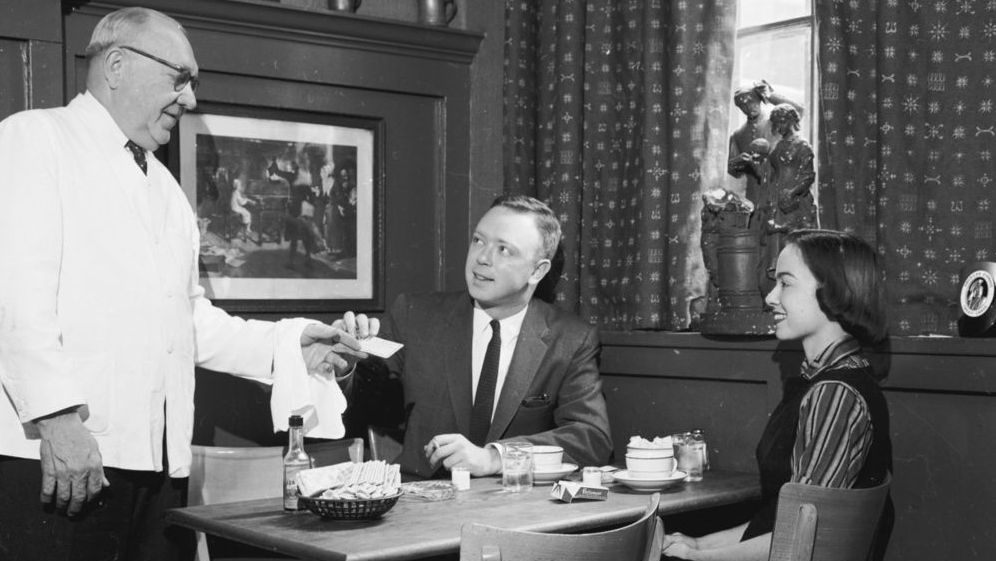Why Do We Still Have To Sign The Check At Restaurants?
The process of receiving the bill, throwing down your credit card, and waiting to sign the check may soon go the way of wine carts and crumb scrapers. As banks improve security by putting more chip-enable cards into our wallets, restaurants and other businesses no longer need to ask for your signature.
CNBC reports four major credit-card companies—Visa, American Express, MasterCard, and Discover—have decided within recent months to no longer require merchants to get your John Hancock. Signing a credit-card receipt might seem like it's for consumers' protection, but it doesn't have much to do with that. According to this explainer from NPR, a signature on a receipt just means the credit-card company—not the merchant—would eat the cost in the event of fraud. No signature, and the restaurant would have to foot the bill for the false charges. Now, with improved chip technology, some merchants may slowly phase out the signature altogether.
Some may still want you to sign a bill in certain cases, such as when you're traveling internationally or don't have a chip card. According to a CreditCards.com survey, 70 percent of Americans carry one of these chip-enabled cards, which help reduce fraud. Of course, experts consulted by CNBC still suggest you pay attention to your credit-card statements and periodically check for Nigerian princes ordering thousands of dollars worth of Amazon videos.
How will tipping work in this brave new signature-free world? Customers may be asked to enter a tip before their cards are run, or may be charged an automatic, flat gratuity. While asking for your signature on the bill was ostensibly about security, a senior analyst for CreditCards.com tells CNBC "the truth is, that signature wasn't doing a lot to prevent fraudulent activity." Another detail of going signature-free? Your restaurant meals are about to get 5 minutes quicker.
